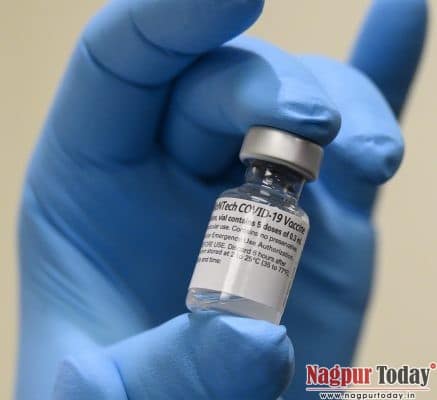– Influencer-led community engagement critical to tackle vaccine hesitancy
Nagpur – I have already been infected with COVID-19 virus. I need not get vaccinated. I will die in a few weeks if taken the shot; taking the vaccine would make me infertile; our DNA will be altered if we get vaccinated.
These are just a few of the several myths that are holding people back from getting vaccinated. Inorder to ensure health safety in the current times, countries are rolling out their vaccination drives, starting from the most vulnerable. However, this isn’t the case with most of the districts in Maharashtra, including Nagpur. Due to myths and misinformation, it is the people from the lowest rungs of the society who have been resisting vaccination the most.
Here in Nagpur, vaccine hesitancy coupled with shortage in supply is making things worse. Just a week ago, Nagpur, which is the fifth largest district in population, became the second lowest district to get the doses. While the administration is working hard to increase the supply, the biggest challenge is to eliminate misconceptions people have, especially the most vulnerable ones living in slums and shanty establishments in the city.
Vaccine is the only available weapon to fight the virus spread. It is of no doubt that the vaccine has the power to reduce the intensity of the virus on us, and hence can prevent death. Governments must deploy more strategic measures to motivate people towards getting vaccinated.
Community-level engagement essential to reach the vulnerable sections
To combat misinformation, governments can utilise the established networks of local influencers or religious leaders at whom people look up to. Through these networks, a community-level engagement can be implemented to drive the cause at a hyper-local level.
Take for instance the case of Gadchiroli. The tribal groups in the district were quite adamant about not getting vaccinated and it was quite difficult to make them understand its benefits. So the local authorities took an unusual route of convincing the local hakims or pandits about vaccination and requested them to spread awareness amongst the masses. Further, local influencers like Prakash Amte were roped in.
Similarly, it is crucial for cities like Nagpur to think of creative and strategic ways to appeal to the marginalised and vulnerable sections residing within their borders. Understanding their mindsets, what motivates them and incentivising vaccination drives with strong messaging could help get rid of the hesitancy. Many countries such as Serbia, Israel, Denmark and many others offer incentives such as free gym passes, cash amounts and gift cards in return for getting vaccinated. Education on vaccines plus incentives make for a good combination to shoo away the rumours hovering over.
Need for digital push
Recently, a toll-free helpline number 1075 was activated for those without internet or smartphones. Calling on the number would ensure their registration. Similarly, authorities can explore text-message and miss-call campaigns to get as many people as possible to register for vaccination. Once the willingness to be vaccinated is garnered, the administration can easily fight the supply shortage and make room for more doses. That process is already in place.
For ones with smartphones, some amount of digital steps targeting the sections living in slums can be taken. Pop-up ads on vaccination, short YouTube videos in local dialects would prove to be effective in educating and urging people to take the jab.
Thinking local, understanding what motivates a specific section of masses and utilising established networks to implement measures for promoting vaccination is the way forward. With just a bit of streamlining efforts in the right direction and approaching the vaccine hesitancy creatively can get rid of the misinformation holding people back from seeing the benefits of the vaccine.
– Dr. Sanjay Chilkar,
Medical Health Officer, Nagpur Municipal Corporation

















